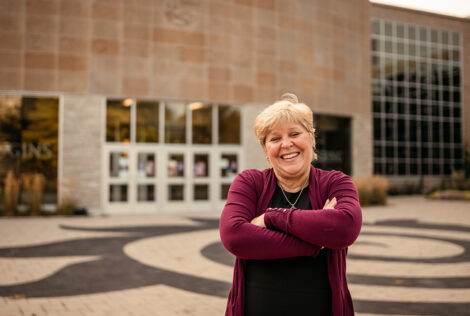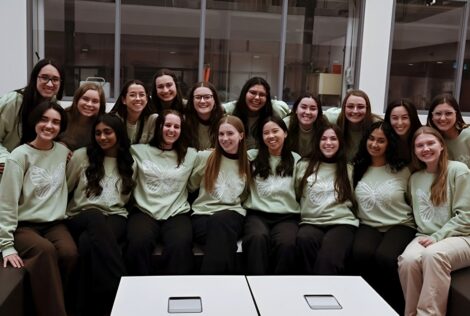
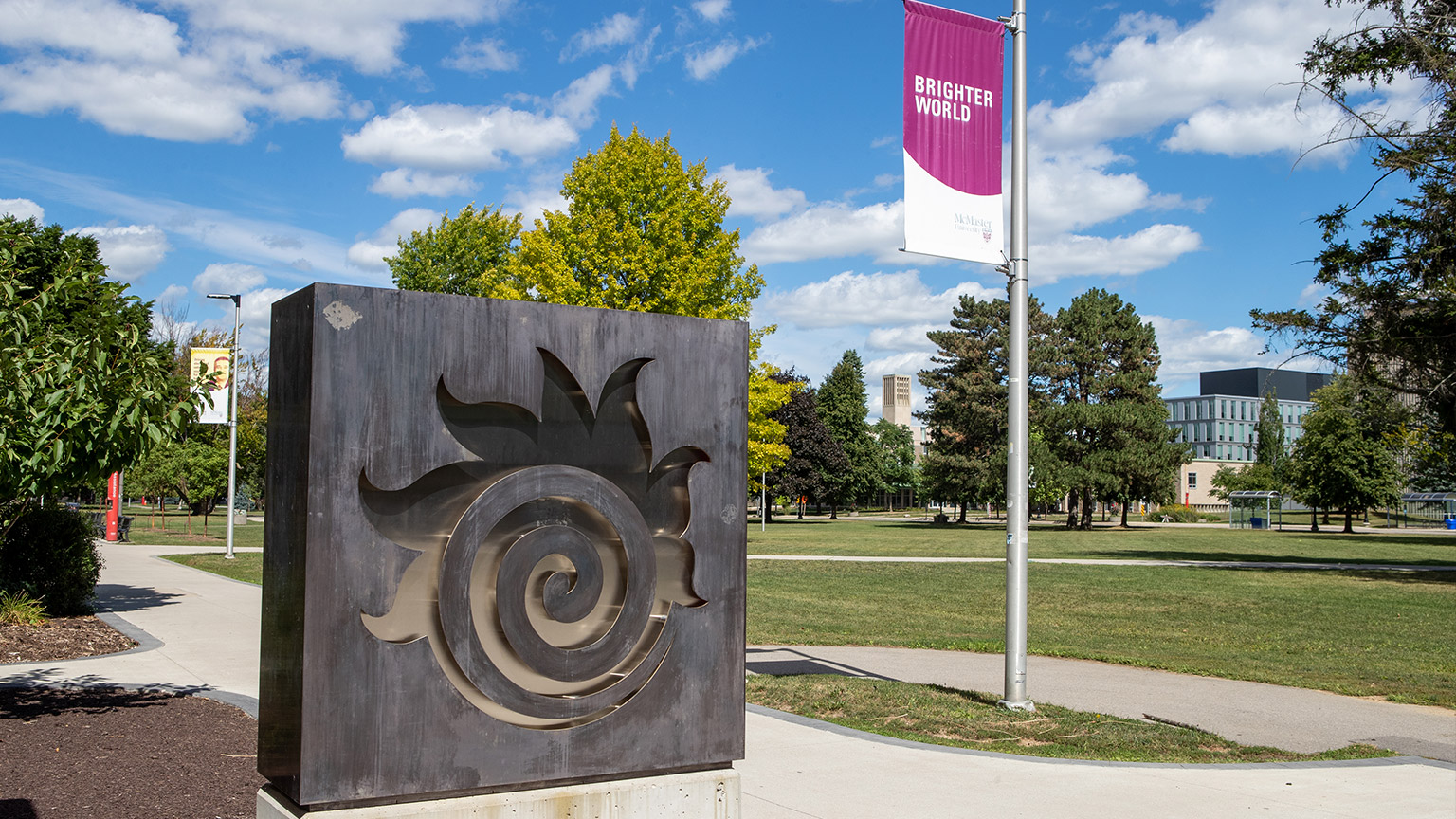
Cheryl Quenneville, an assistant professor in Mechanical Engineering and the School of Biomedical Engineering, says mentoring graduate students is one of the most rewarding aspects of her job. She and two of her graduate students in the School of Biomedical Engineering, Julia de Lange and Marisa Kohut, talk women supporting women in STEM, developing your career path and the instrumental people you meet along the way.
Here’s part of their conversation:
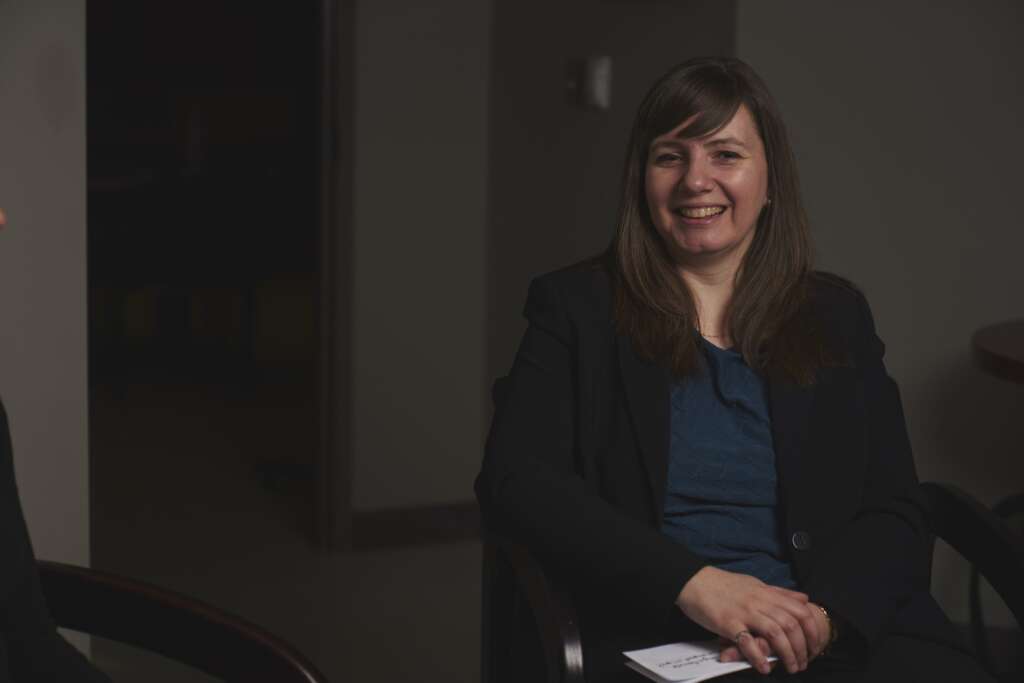
Julia: When did you know you wanted to be an engineer?
Cheryl: It’s interesting that I ended up at McMaster because McMaster is the reason I decided to become an engineer. The Fireball Show came to my high school and gave a presentation. They dunked things in liquid nitrogen and talked about all the different cool things engineers could do which is when I considered it as a career option beyond math and science.
Julia: In high school, I really excelled in math and science which is the classic answer, but I had an innate curiosity of how things worked. Having two older brothers, we were always playing with Lego and destroying things.
Marisa: I was always very interested in problem solving, getting my hands dirty and trying to fix things. My dad’s an engineer and I related a lot to him and I remember looking at all the universities that I applied to. He always said, “You’ll be the engineer in the family.” What challenges do women in engineering face and how have you overcome those challenges?
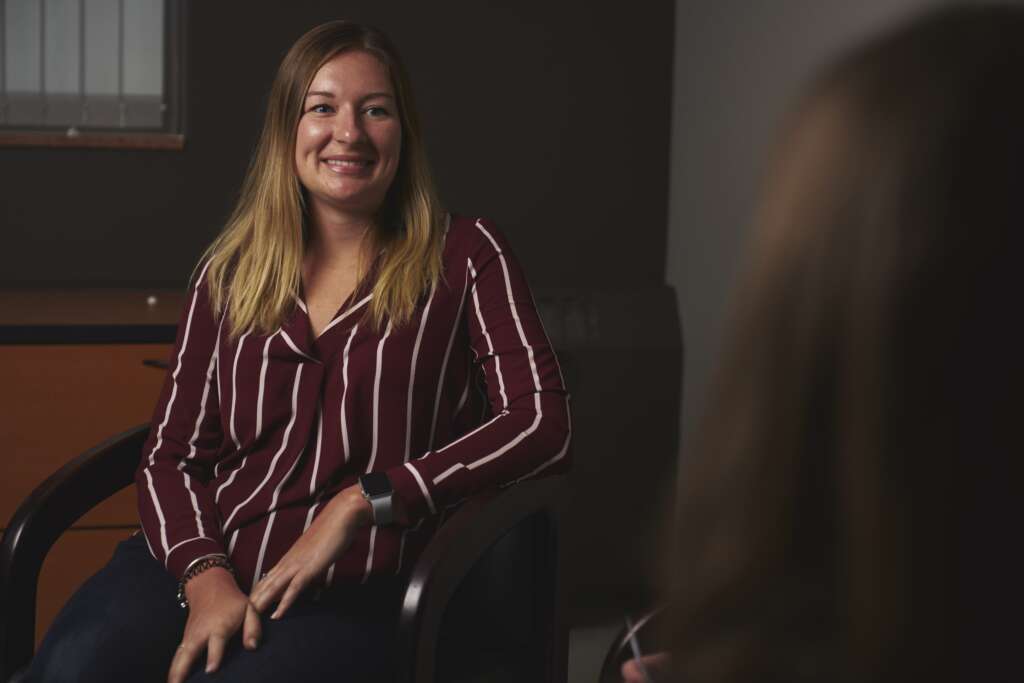
Cheryl: I think a lot of the challenges that women in engineering face have to do with feeling that they are capable and belong. Not being able to see females already working in that environment that you could identify with is a challenge, so having female mentors made a huge difference in envisioning myself in my career path and what struggles they have with difficult colleagues and balancing work and life. How has having a female mentor made an impact on you?
Marisa: I was able to connect with you and other female mentors in my life and relate to them. They understand my personal goals, my values and career goals. They want to help me and see the best in me and keep building on that which has impacted me and my ability to learn.
Cheryl: What’s the most rewarding thing about being an engineering graduate student at McMaster?
Julia: The engineering community at McMaster is very engaged and community oriented. I’ve had a lot of opportunities. I’ve used this time to develop a lot personally. We have really cool equipment in our lab where I get to smash bones, so I like to think our lab is one of the best in Canada. Having a female mentor has been helpful for us because you [Cheryl] really encourage our personal development to get skills to build confidence in a field that’s dominated by men for the most part. Working on professional and communication skills has been really important that we’ve both benefited from, and I think without a female mentor who understands from being in our position, that might not have happened.
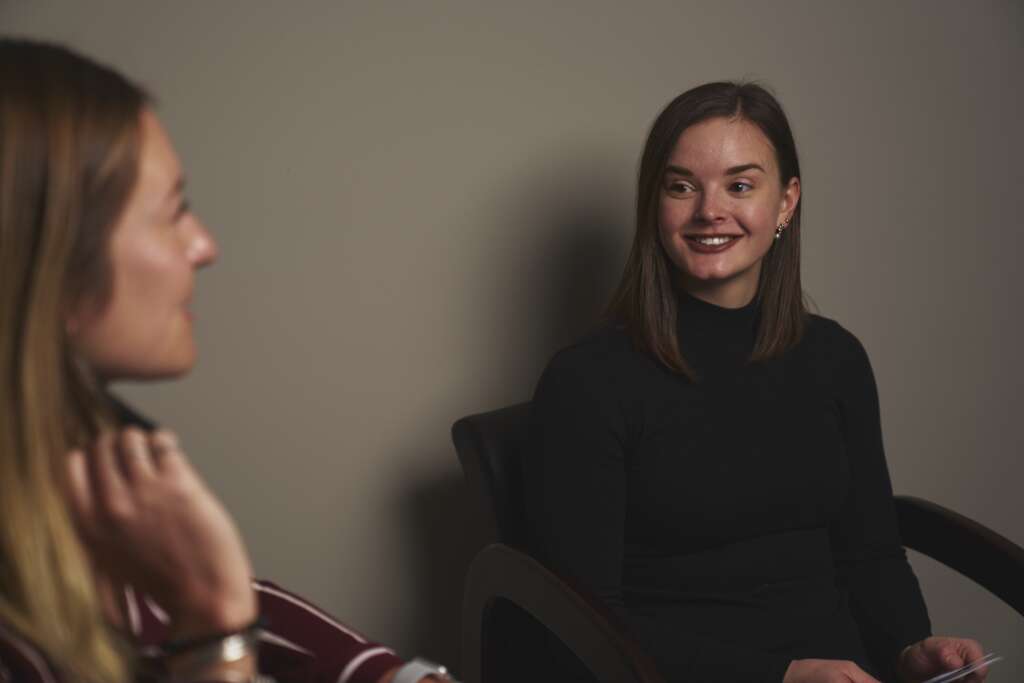
Marisa: What do you enjoy most mentoring female students?
Cheryl: I had a female mentor when I was a graduate student and it had a big impact on how I developed professionally and the career path that I chose. Mentoring my graduate students is one of the most rewarding aspects of my job. I really enjoy seeing you develop your professional goals, seeing what skills you’re interested in learning and trying to provide those opportunities for you and seeing you grow in independents and move towards the career path you ultimately choose. That’s really satisfying.
Marisa: What does International Women’s Day mean to you and why is it important?
Cheryl: It’s important to recognize that while we’ve made a lot of progress in terms of supporting women in professional environments, there’s still areas they can be improved. From a personal perspective, I like that it’s a day that causes people to take pause and think about where they may still be some challenges perhaps in their workplace or in their personal lives where they can make some efforts to supporting the women that surround them.


